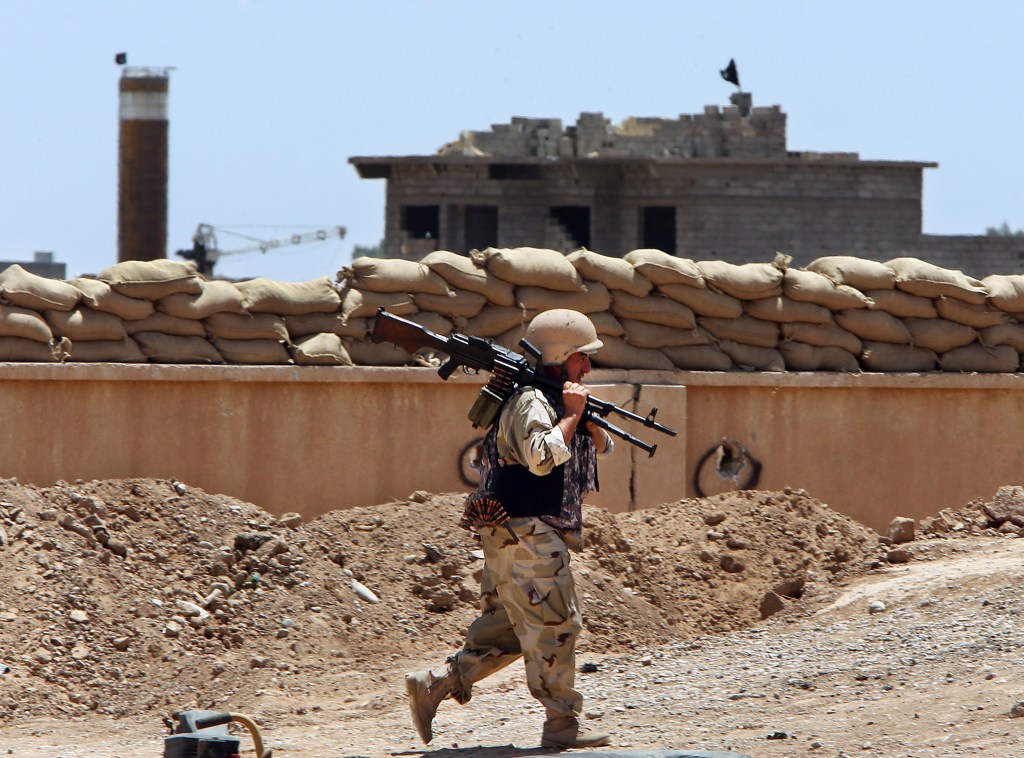“The world is exploding all over.” – Secretary of Defense Chuck Hagel, Aug. 12
The willingness of Americans to get involved in conflicts overseas – or even to pay attention to them – has unsurprisingly declined in recent years. A Pew Research Center survey reported last month that only 3 percent of respondents said they were “intensely concerned” about foreign affairs.
That has fallen from about 50 percent after the terrorist attacks of Sept. 11, 2001.
The survey said that of three major international conflicts – fighting between Israel and Hamas in Gaza, the rise of the jihadist Islamic State in Syria and Iraq, and fighting in Ukraine, including the downing of an airliner there – only about a third of Americans said we had any responsibility to influence the first two conflicts, and only a few more said they were even paying attention to them.
Only the airliner incident raised concern to the 50 percent level, likely because hundreds of foreign civilians were the casualties.
What does this mean for U.S. foreign affairs? First, it indicates President Obama is touching a national nerve when he downplays U.S. influence and engagement in areas of conflict.
On the other hand, it may be that his disengagement, in sharp contrast to the policies of all other post-World War II administrations, is part of the reason Americans have turned their priorities elsewhere.
But prominent officials are saying that’s unwise, and the warning is bipartisan.
Sen. Lindsey Graham, R-S.C., a member of the Armed Services Committee, said Sunday that the Islamic State is a direct threat to the United States, and could well launch attacks here in the near future.
Citing an Islamic State video boast that “We will raise the flag of Allah in the White House,” Graham said, “They are coming,” adding that Obama’s “game plan” is too weak to protect Americans.
And Sen. Dianne Feinstein, D-Calif., chairwoman of the Intelligence Committee, who has often warned that jihadists have been recruiting and training hundreds of radicals to attack the United States and Europe, repeated those warnings last Friday.
She added, “It takes an army to defeat an army, and I believe that we either confront (the Islamic State) now or we will be forced to deal with an even stronger enemy in the future. Inaction is no longer an option.”
But of course, it is – at least for a time. As long as destruction remains an ocean or more away, many Americans are fine with ignoring it.
Some will say such warnings echo those of the Bush administration in the run-up to the invasions of Afghanistan and Iraq after 9/11, and they’re right.
However, that doesn’t make them wrong. Acting sooner rather than later can halt future tragedies. For example, President Clinton had an opportunity to capture Osama bin Laden during his time in office, and turned it down. And President Bush was warned that al-Qaida was planning attacks in the United States and, for whatever reason, failed to prevent them.
Further, who knows what now-war-weary Americans would demand their leaders do after another 9/11-style attack (or an even worse one)? But if the worst happened, could we even respond effectively?
There’s reason to doubt it. As The Washington Times reported July 31, “An independent panel appointed by the Pentagon and Congress (has said) that President Obama’s strategy for sizing the armed forces is too weak for today’s threats.”
It continued: “The National Defense Panel called on the president to dump a major section of his Quadrennial Defense Review (QDR) and write a broader strategy that calls on the military to fight on multiple fronts at once.”
That’s not new, by the way. A multiple-front capability had been official U.S. defense policy since the end of World War II, until it was abandoned by Obama.
The story concluded that Obama’s plan for “shrinking U.S. forces, which are being downsized to fit that (QDR) strategy and budget cuts, is a serious strategic misstep on the part of the United States,” leaving the U.S. military “inadequate” to meet current and future threats.
Note also that some strategic analysts, unhappy with calling the post-9/11 campaign a “War on Terror” (“How can you make war on a tactic?” they sensibly ask), have proposed another title – one guaranteed to be unpopular.
These analysts say we should recognize that jihadism will not be defeated until its perpetrators are ready to give it up.
And since the conditions for achieving that are presently unknown, we should more accurately be calling our anti-terrorism efforts “The Long War.”
Not very appealing, is it?
And yet, as the saying goes, what will Americans who are not interested in war do if it again becomes undeniable, as it did on 9/11, that war remains interested in them?
M.D. Harmon, a retired journalist and military officer, is a freelance writer and speaker. He can be contacted at:
mdharmoncol@yahoo.com
Send questions/comments to the editors.


